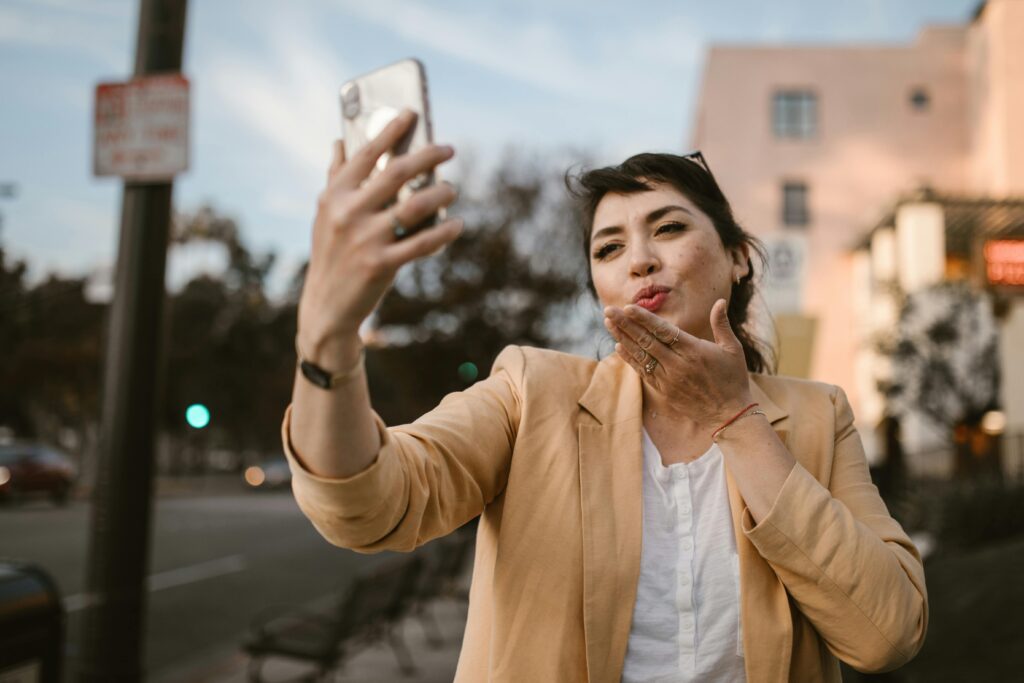A new frontier for sexual education and personal growth is emerging. And it may significantly alter the landscape of digital intimacy and social media interaction.
The pivotal study “Learning on OnlyFans: User Perspectives on Knowledge and Skills Acquired on the Platform” by Marie Lippmann Ph.D., Natalie Lawlor, and Christine E. Leistner Ph.D., offers an in-depth analysis of how consumers use these digital platforms. Specifically, to enhance their sexual empowerment and knowledge, explore personal desires, and boost intimate connections.
It examines the benefits of these digital interactions positioning them as unexpected resources in modern sex education. This offers valuable insights for educators, policymakers, and the broader public.
“Participants reported improvement in relationships, self-improvement, and a broader sense of community.” (Marie Lippmann, et al.)
Gathering Data
The researchers followed a mixed-method survey design, involving quantitative and qualitative approaches. This rigorous method combined structured, scale-based questions with open-ended inquiries. Further allowing participants to express experiences, from sexual practices and preferences to relational and health insights.

The Participants
Sample size: 425
Age: Ranged from 18 to 74 years old (mean age of 37)
Gender: 53.4% male; 45.6% female; 0.7% non-binary or gender nonconforming; 0.2% transgender
Sexual Orientation: 80.9% heterosexual; 12.5% bisexual/pansexual; 5.2% lesbian/gay; 0.2% questioning/uncertain; 0.7% other (with terms like heteroflexible and sapiosexual mentioned)
Relationship Preference: 61.2% preferred monogamous relationships; 28.5% preferred open relationships; 4.5% preferred polyamorous; 3.5% preferred swinging; 2.4% self-described as committed, married, or single
Current Relationship Status:
- 82.1% were in romantic and/or sexual relationships at the time of the study
- 49.2% were married and living with their spouse
- 17.4% identified as single/not married/not currently partnered
Additionally, 24 identified as sex workers and 17 participants were platform-specific content creators.
Key Takeaways
First, the participants reported mostly positive influences, with a significant number learning new aspects about sexual practices (91.3%), personal sexual preferences (91.1%), relationships (88.5%), and sexual health (90.6%).
Additionally, the study found that age significantly predicted learning outcomes. Particularly in sexual practices, relationships, and sexual health, with younger participants learning more from their use of the platform.
However, there were no significant differences found between male-identifying and female-identifying participants regarding the impact of the platform on their sexual lives or their learning.
The Positive Side of Things
Improvement in Sexual Functioning and Pleasure: Users reported enhancements in sexual satisfaction. This includes learning new methods to extend pleasure and discovering new ways to become aroused.
Increased Self-Confidence and Self-Esteem: Participants noted a boost in self-confidence and self-esteem. They attribute this to their experiences on the platform.
Sexual Knowledge: Many users gained valuable knowledge about safe sexual practices, consent, and healthy sexual behaviors. Thus, contributing to a more informed approach to sex.
Enhancements in Relationships: The platform was credited with improving aspects of relationships, including communication, intimacy, and sexual satisfaction. They encourage open discussions and shared explorations.
Greater Understanding of Personal Sexual Preferences: Users gained insights into their sexual preferences and desires. It facilitates personal sexual exploration and identity formation.
Community and Connection: Users felt a sense of belonging and community through their interactions on the platform – it provided social support and connection.
Sexual Empowerment and Sexual Autonomy: Participants expressed feeling empowered and more in control of their sexual autonomy. The platform offers opportunities for self-expression and exploration.
What Skills Did They Acquire?
Participants reported learning a range of specific skills, including sex positions, body exploration/stimulation, ways to achieve orgasm, masturbation techniques, oral sex techniques, ways to please partners, and sex toy use.
Their feedback included statements such as “new positions”, “different ways to stimulate women”, and “learned a lot about making and controlling myself during feeling masturbating.”

The Potential Drawbacks
While the main results of the data were positive, the researchers unearthed several potential pitfalls to using the platform, bringing awareness to the complexities and challenges associated with using digital spaces for sexual exploration and education.
Unrealistic Expectations and Inadequate Information
Some users found the platform contributed to unrealistic expectations regarding sex and inadequate information about sexual health and consent. This misalignment could potentially distort perceptions of healthy sexual relationships and interactions.
Concerns Over Content Quality and Impact
There were concerns about the platform allowing content that some users found objectionable. One participant suggested that the platform should promote healthier sexual behaviors and scrutinize content more rigorously to prevent the dissemination of harmful material.
Exposure to Harassment and Unwanted Interactions
Participants mentioned encountering harassment and engaging with “strange people” on the platform, indicating a risk of negative social interactions within such digital spaces.
Potential for Secret Keeping in Relationships
A few participants mentioned practicing behaviors like having multiple sexual partners or keeping secrets from their main partners, which might indicate the use of the platform in ways that could potentially undermine trust in relationships.
Marie Lippmann and colleagues acknowledged that their findings might not be universally applicable based on a unique population that feels comfortable using such platforms. They suggest a need for broader research to understand the varied experiences across different cultural and demographic groups.
The Bottom Line
Platforms that blend social media and digital content creation open new avenues for learning, especially on topics as personal and complex as sexuality.
This study explored how users of a digital patronage platform perceive the impact of their use on their sexual lives – revealing overwhelmingly positive influences on sexual empowerment and experiences. The significant takeaway is that such platforms can serve as valuable resources for sexual education, offering personalized learning experiences that traditional methods may lack.
Moving forward, there’s a pressing need to integrate digital literacy and responsible platform use into sexual education programs to harness the education potential of these platforms – all while mitigating the risks.
The use of these platforms for personal growth and learning in sexual empowerment, sexual health, and relationships cannot be overlooked.




